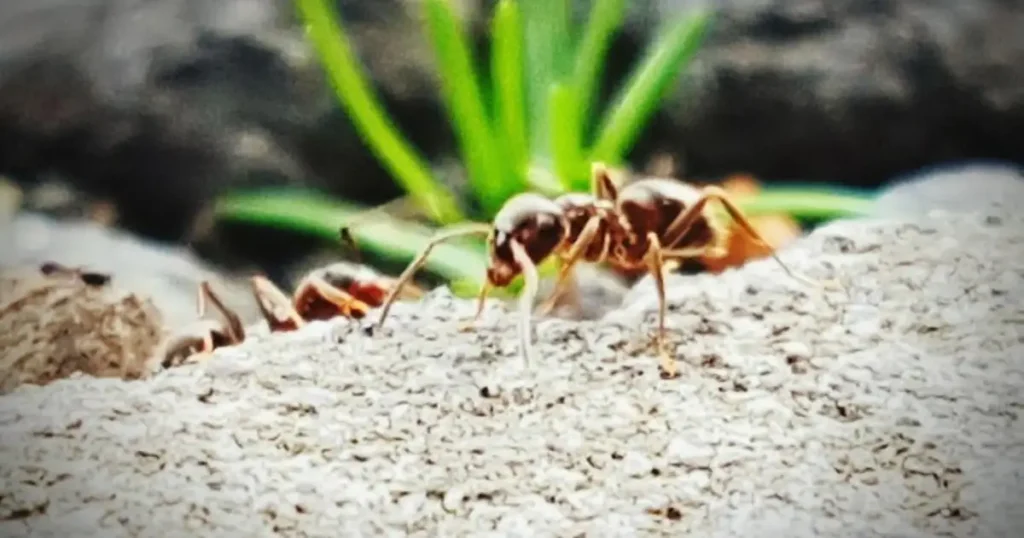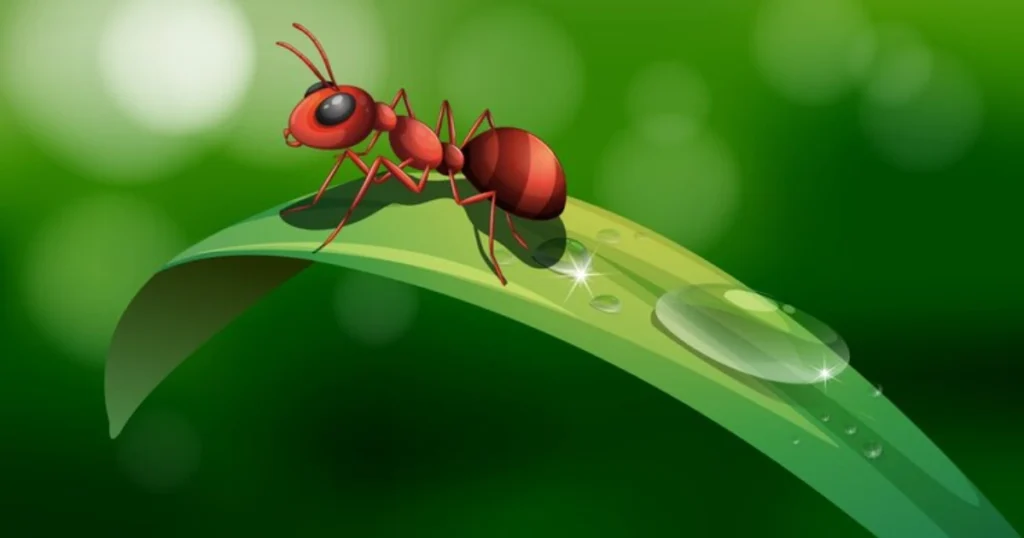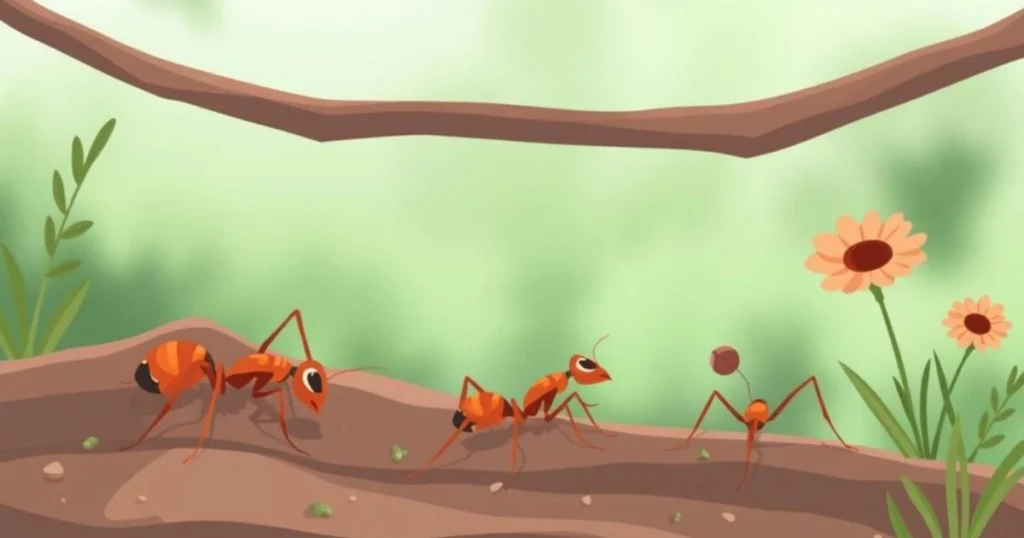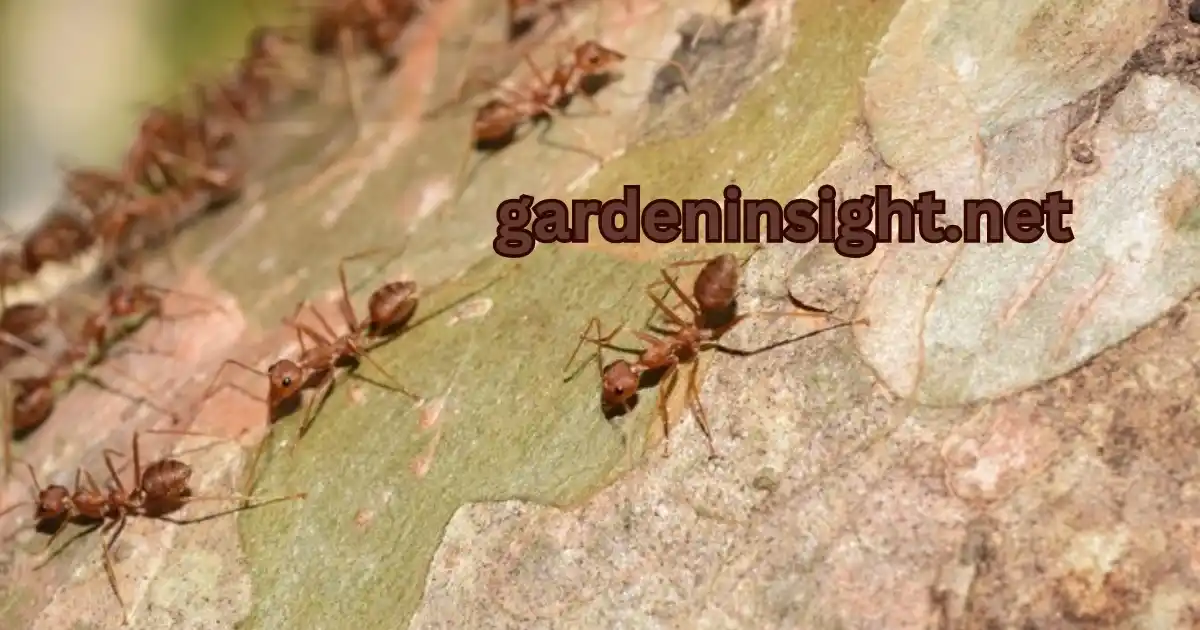Ants in your garden can be more than just a nuisance. They can damage plants, farm pests like aphids, and even invade your home.
This comprehensive guide explores various methods to get rid of ants in garden, ensuring a healthy and thriving environment for your plants.
Identifying the Ant Problem

Before you wage war on ants, it’s crucial to identify the type of ant you’re dealing with and understand their behavior. Different ant species may require different control methods. Common garden ants include:
- Odorous House Ants: These small, black or brown ants release a rotten coconut smell when crushed. They often nest in exposed soil or under rocks.
- Pavement Ants: These dark brown or black ants build nests under pavement, stones, and sidewalks. They can also invade homes.
- Carpenter Ants: These large, black ants can cause structural damage by nesting in wood. They are less common in gardens but can be found in decaying wood or near trees.
Observing ant trails, nest locations, and their behavior can help you determine the best approach for eliminating them.
How to Get Rid of Ants in Garden Naturally
If you prefer to avoid harsh chemicals, there are many natural and organic ways to get rid of ants in your garden. These methods are often safe for plants, pets, and the environment.
Diatomaceous Earth
Diatomaceous earth is a natural powder made from fossilized diatoms. It works by damaging the exoskeleton of ants, causing them to dehydrate and die. Sprinkle diatomaceous earth around ant trails, nest entrances, and the base of plants. Reapply after rain or watering.
Boiling Water
This simple method can be very effective for eliminating ant nests. Locate the nest entrance and carefully pour boiling water into it. This will kill many ants instantly and disrupt the colony. Be cautious not to harm surrounding plants.
Essential Oils
Certain essential oils, such as peppermint, tea tree, and citrus oils, repel ants with their strong scent. Mix a few drops of essential oil with water and spray around ant trails and potential entry points. You can also soak cotton balls in the oil and place them near nests.
Vinegar
Vinegar is another natural ant repellent. Mix equal parts white vinegar and water in a spray bottle and apply it to ant trails, nest entrances, and around plants. The strong smell will deter ants and disrupt their pheromone trails.
Beneficial Nematodes
Beneficial nematodes are microscopic worms that prey on ants and other soil-dwelling insects. They are available online or at garden centers. Apply them to the soil according to the instructions, and they will naturally control ant populations.
How to Get Rid of Ants in Garden Pots

Ants in garden pots can be particularly troublesome. They are attracted to the moist soil and potential food sources within the confined space. Here’s how to tackle them:
Diatomaceous Earth
Sprinkle a thin layer of diatomaceous earth on the soil surface.
Essential Oils and Vinegar
Use essential oils or a vinegar solution as described above to repel ants from the pot. Spray the solution around the rim and base of the pot.
Repotting
If the infestation is severe, repot the plant with fresh soil to eliminate ants hiding in the old soil.
Ant Baits
Place ant baits near the pot, ensuring they are out of reach of children and pets.
Preventive Measures
Keep the area around your pots clean, use water trays to create a barrier, and apply sticky barriers like petroleum jelly around the rim of the pot.
How to Get Rid of Ants in Garden Bed
Garden beds provide ample space for ants to build nests and forage for food. Here’s how to manage ants in this environment:
Diatomaceous Earth and Beneficial Nematodes
Apply diatomaceous earth or beneficial nematodes to the soil as described above.
Ant Baits
Strategically place ant baits near ant trails or areas of high activity.
Insecticides
Use insecticides labeled for garden use, following the instructions carefully.
How to Get Rid of Ants in Garden Without Killing Plants
Protecting your plants while eliminating ants is crucial. Here are some methods that are safe for your plants:
Diatomaceous Earth, Essential Oils, and Vinegar
Utilize these natural solutions as described above to repel or eliminate ants without harming your plants.
Hand Removal
For small infestations, manually remove ants or use a vacuum cleaner.
Barriers
Create physical barriers around your plants using diatomaceous earth, coffee grounds, or crushed eggshells.
How to Get Rid of Ants in Garden Soil

Ants thrive in garden soil, but you can control their population with these methods:
Beneficial Nematodes and Vinegar Solution
Apply beneficial nematodes or a vinegar solution to the soil.
Diatomaceous Earth
Sprinkle diatomaceous earth on the soil surface.
How to Get Rid of Ants in Garden Organically
Organic gardening practices focus on using natural and sustainable methods. Here’s how to get rid of ants organically:
Avoid Synthetic Pesticides
Opt for natural solutions like diatomaceous earth, essential oils, vinegar, and beneficial nematodes.
Encourage Beneficial Insects
Ladybugs, lacewings, and other beneficial insects prey on ants and other garden pests. Attract them to your garden by planting diverse flowers and herbs.
Compost and Mulch
Use organic compost and mulch to improve soil health and create a less hospitable environment for ants.
How to Get Rid of Ants in Garden with Baking Soda
Baking soda can be an effective ant deterrent. Here’s how to use it:
Direct Application
Sprinkle baking soda around ant trails and nest entrances.
Baking Soda and Powdered Sugar Bait
Mix equal parts baking soda and powdered sugar. The sugar attracts ants, while the baking soda disrupts their digestive system.
How to Get Rid of Ants in Garden Safe for Dogs
If you have dogs, it’s important to choose ant control methods that won’t harm them.
Pet-Friendly Products
Select ant baits and insecticides specifically labeled as safe for dogs.
Natural Solutions
Prioritize natural solutions like diatomaceous earth, essential oils, and vinegar, as these are generally safe for dogs when used correctly.
Keep Products Out of Reach
Store all ant control products in a secure location where your dog cannot access them.
Conclusion
Dealing with ants in your garden can be frustrating, but with the right approach, you can effectively get rid of ants in garden. Whether you prefer natural solutions or commercial products, there are various methods to suit your needs and preferences.
Remember to identify the type of ant you’re dealing with, consider the safety of your plants and pets, and take preventive measures to avoid future infestations.
By following the tips and techniques outlined in this guide, you can create a healthy and ant-free garden environment for your plants to thrive.
FAQs
Some of the frequently inquired questions about ways to get ants in garden are given as:
How can I identify the type of ants in my garden?
Observe their size, color, behavior, and nest location. You can also consult online resources or a local pest control expert.
Are all ant control methods safe for pets?
No, some commercial products can be harmful to pets. Always choose pet-safe options and follow the instructions carefully.
How often should I reapply natural ant repellents?
Reapply natural repellents like diatomaceous earth and essential oils after rain or watering, or as needed based on ant activity.
What should I do if ant infestations persist despite my efforts?
If you’re struggling to control ants, consider contacting a professional pest control service for assistance.
